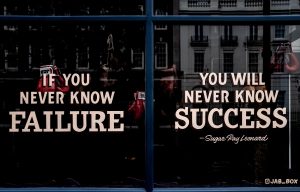One of the most common reasons for failure in becoming successful online is the fear of failure itself and I am one of those people whose life might have taken a different turn if I hadn’t held a fear of failure as well as a lack of confidence.
One of the top 10 social media influencers, with over 16 million readers of his website, tells that “In the beginning the one thing that held me back from starting was the fear of not knowing how or where to start. The fear of not being good enough. The fear of failure”.
As I continue my online journey, I realise the fears that I have to (and will!) overcome:
- Will my blog posts be read by anyone?
- Will my blog posts make sense and have interest for anyone?
- Will I be able to keep up with my course?
- Will I be able to understand everything that I am being taught and make it work?
- Will my mentor have patience with me when I am just ‘spinning my wheels’?
- Will I be able to produce a digital product?
- Will anybody buy my digital product?
- Will I be accepted by other marketers as being serious and having potential value?
And so, my list could go on. The thing is for many people embarking on a new venture online, everything is new and alien. If you were born before 1985, the chances are that you were not taught much at school about computers and even if you were, most of what you were taught will be out of date. Thus, anybody over the age of 40 who has not been involved in the computer industry probably has very little knowledge of affiliate marketing, blogging and WordPress. After all, it wasn’t until 2005 that Broadband was available to the mass market. Before then, we used to have to use a dial-up connection which was often unreliable and could be prohibitively expensive for private individuals, although there were obviously some pioneers. My own mentor John Thornhill acquired his first computer in 1999 and started earning a reasonable amount of money in 2004.
The only way to overcome the fear of failure is by firstly having confidence in yourself (something that has blighted my life for many years) and believing that you can do it (As I do now!), secondly putting trust in your mentor. (That is not as easy as many would have you believe, when you remember that many so-called mentors are more interested in your money than your well-being!). Thirdly, planning, preparation and research (The old adage of fail to plan and plan to fail applies just as much now as it did 100 years ago). If at all develop a plan of how your online journey will look and set some goals. Prepare as best you can, sometimes that might mean taking a sideways step from your mentor’s teachings. For example, I have failed several times as I have not been able to keep up a blogging schedule and have suffered from writer’s block. That in turn has knocked my confidence and brought me to a halt. I have now realised that if I write several blog posts before launching, then I am more confident about what I am writing and feel less pressurised to write a blog ‘on demand’. Do lots of research. Your mentor will teach you how to do things his or her way and geared towards his or her own preferences which might not suit the way you prefer to do things. I have found innumerable people blogging about the self-same things that I am trying to blog about. Learn from their experience but DO NOT copy their work. Plagiarism is theft!
Finally, if you are still scared of failing, try and visualise your own worst-case scenario. In many cases, that may be embarrassment or someone saying “I told you so”. Remember that some of the greatest success stories have come about following an epic failure. In the computer world:
Bill Gates’ first company ‘Traf-O-Data’ failed
Mark Zuckerberg’s first venture ‘Facemash’ was shut down by Harvard University forcing Zuckerberg to issue apologies and for the student paper to call the site “completely improper.”
Steve Jobs set up Apple computers in 1976 and it became very successful, but he appointed a CEO with different ideas for the company and finished up resigning and having to start a new business from scratch, eventually returning to Apple when the company faced liquidation.
If you are of a certain age, as I am, then you may be inspired by Colonel Sanders (Of Kentucky Fried Chicken fame) who’s entire life was blighted by failures, but who set off at the age of 65-years old, to sell his franchised-chicken model to restaurants across the US. 1,009 restaurants rejected him before one agreed to his idea.
Well, this post might ‘bomb’ and be ignored, but I have done it anyway!

